INTRODUCTION
To follow is Chapter 9 in a series that is my personal transformative journey from my early years. This story began with me living as a long term unemployed single parent with two children with different fathers, never being married. I was definitely on the bottom rung of society. I lived in the highest unemployed town in the UK with the demise of its Iron and Steel, Chemical and Shipbuilding industries, thus experiencing years of poverty and ostracisation. This is the story of how, supported by a strong Christian faith, I deeply analysed and navigated my way through it all, to an absolutely fulfilling life.
In the light of what’s happening in this chaotic world today, I feel moved to tell my story with all its different facets, because my main hope is that the reader will see the human face of the marginalised. Then, hopefully, gain a more compassionate understanding of all those who live on the margins of society. I hope the reader finds clues on how to make connections with people different from them, or to change the top down competitive economic system so all people are justly valued whether they were in paid work or out of paid work.
I invite the reader to pick any chapter and, if it resonates with you, to organise a zoom working group in the New Republic of the Heart community to discuss and explore any particular issue or let it inform the work you are already doing.
I acknowledge that every single one of us has our own unique experience from our own unique perspective waiting to be heard and learned from. This is simply my experience. I’d love to maybe one day hear and learn from yours.
Linda Granville
To read Chapter 8, click HERE.
◊◊◊◊◊◊◊◊◊◊◊◊◊◊◊◊◊◊◊◊◊◊◊◊◊◊◊◊◊◊◊◊
CHAPTER 9 ~ THE PASTORAL CYCLE
“Some people think they are in community, but they are only in proximity.
True community requires commitment and openness.
It is a willingness to extend yourself to encounter and know the other.”
~ David Spangler
To promote understanding of ‘the other,’ I joined other Sikh and Muslim community workers in my community to create a multi-faith pilot group to work with The Pastoral Cycle, a powerful tool developed by the Christian Liberation Theologians in South America. Our group of twelve women committed to spending one full day every three weeks for one year to work this process, with practical work done between those three weeks. The Pastoral Cycle is also referred to as: ‘See, Judge and Act,” and involves these three steps that our group followed:
1. SEE.
First establish a consensus of ground rules such as confidentiality issues, non-judgemental listening, freedom to participate in an activity or not, etc. Then listen to each other’s personal experience at a deep level from our own life and faith perspective.
Note: This important first step took three sessions. This gave us ample time to listen deeply and see the real person. It was a great beginning of going beyond surface communication to build a deeper understanding of each other and promote mutual trust.
The next directive was to link our experience to the wider community:
- Visit different faith buildings in that community such as gurdwaras, mosques, synagogues, churches and temples.
- Visit different secular community initiatives.
- Visit different faith community initiatives.
Hindu Temple
- Walk around, observe and take photographs, each in a different part of the local area, and give reasons why we were moved to take the photograph.
2. JUDGE
Reflect on what we see. Ask ourselves what our Faith Tradition would do in the situations that we all observed from many different perspectives.
Some stood outside the local supermarket on different days and noticed the difference between what was put in the shopping trolleys on a Friday when people in paid work got their wages, and on a Monday when people on benefits went shopping. The discrepancy between these two kinds of shopping baskets coming from the same local supermarket was a blatant confirmation of the growing top-down, rich-poor economic divide even within our local neighbourhood, to which many people were oblivious. Our group’s observations brought back memories, myself included. I can fully recall the absolute shock I personally felt when, after doing years of voluntary work, I finally had ‘paid’ work and went shopping on a Friday.
A Muslim member observed that the local swimming baths had closed their women-only sessions. This was a disaster, especially for some abused women of all faiths, and for a lot of Muslim women where the local swimming baths were their only point of recreation outside their homes. They knew they would never be allowed, nor wanted, to bathe alongside men. This dramatically isolated them inside their homes even moreso.
I also realised that nobody in our community needed to go hungry if they lived near a Sikh Temple as the Sikhs regularly opened their doors and offered to feed the public with a hot meal, whether they were Sikh or not. These meals were often for free or at a very low cost.
I was fascinated by the service in the Hindu Temple where people were singing very joyful, lively songs. It reminded me of a very charismatic church I once belonged to where most of the service was full of such joyful singing. I felt I could have been in the same service, and this broke down my preconceptions about differences in faiths.
We recognised that sanctuary seekers in the area (some in our group) were given a pittance to live on and struggled to feed themselves healthily. We listened to too many women in the community experiencing domestic violence.
3. ACT
With new understanding and awareness gained from Seeing and Judging, take action that benefits and transforms our community.
Among other things, we encouraged people to join the local Time Bank which I, along with others, had helped set up in the area. People and organisations pooled their time and skills to help each other out without payment. This enabled them to have extra money to fill their baskets even more when shopping on Monday in the supermarket.
The sanctuary seekers in our group who weren’t allowed to do ‘paid work’ joined the Time Bank and were able to offer their previously unrecognised latent skills and feel a great deal of self worth. Others did jobs for them in return which normally they could never afford.
We also successfully campaigned against the women-only sessions in the local swimming baths. I realised that if I had looked at the community only from my limited Christian perspective, I may have overlooked serious isolation issues.
We held fortnightly gatherings in my home with more women in and outside of the original group from Zimbabwe, Milawe, Canada, England, Jamaica, India, Pakistan, Ireland, Israel, Palestine, Scotland, the Philippines and Portugal. We took turns to cook and teach each other our particular cultural food. It was interesting to me to learn the different taboos in each culture concerning food, and thus helped me to remember those taboos so as not to insult anyone when cooking them a meal in the future. Respecting these taboos strengthened relationships.
This was a great catalyst to then sit around my table in an informal and very friendly atmosphere and eat the food that we cooked together while discussing personal and wider women’s issues. To me, this was the true meaning of God’s Communion table.
Other women joined some of our projects when we set up a multifaith garden allotment group as encouragement to meet each other and work together growing our own food.
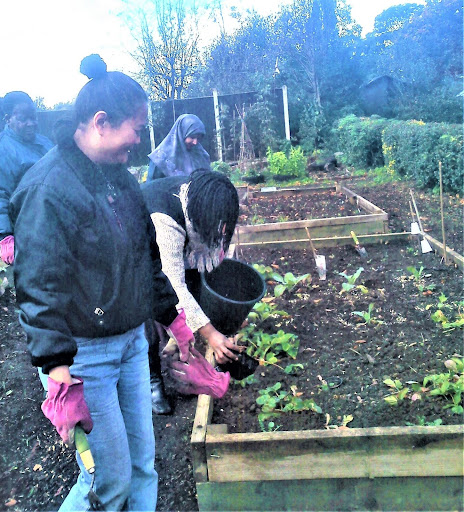
This helped some of the sanctuary seekers in the group to happily remember their long lost gardening skills from their previous lives in their home country and now have the opportunity to feed themselves properly with fresh vegetables and fruit. They gained renewed confidence and self esteem because they had grown everything themselves.
We also organised domestic violence awareness training, The Freedom Programme, for faith leaders. This was to inspire them to educate the local men in their diverse congregations, and bring them into awareness of these often pushed-under-the-table and serious domestic violence issues. Some faith leaders would not even contemplate that domestic violence took place in their communities. The programme also worked directly with men too, including those who had been abusers as well as those who have been abused.
Some of us marched in London along with women from across the UK to campaign against women’s abuse.
We recognised all the things we had in common. We came out of our comfort zones to look beyond ourselves. We visited places we normally wouldn’t think to visit. We ended our work together with a much wider, compassionate understanding, and respect for the whole spectrum of this wonderfully diverse local community. One member set up her own organisation (African Women’s Empowerment Forum) and continued to empower other African women. We made deep lasting friendships.
One or two of the countries where the women originated from had been at war with each other. My secret hope was that by them having already taken one small step to understand ‘the other’ and find friendship locally, they might influence their fellow countrymen to realise that if they did the same, friendship was possible between each country. I’ve always believed that the macro always affects the micro, but also that the micro can affect the macro too.
There were many obstacles we had to overcome.
A funding bid to put this pilot together took years to come into fruition, because at that time the world banking system had collapsed and funding for many community groups became non-existent. The original vision was that, after this first group, we would then set up men and youth groups and have different ones using this process across the whole community. However by the time we secured the funding, I had only one year left before my retirement. Plus the Sikh community worker who was very enthusiastic in helping to share this vision got married in the interum and left the area. She was really missed, but I and a Muslim community development worker continued to co-coordinate this pilot group regardless.
To prevent obstacles to participation for any women’s group, we always needed to make sure to raise funds for a children’s crèche, for wheelchair access, or for a lip speaker or sign language if needed. On one occasion we needed someone to translate a poster in different languages, but then soon realised that a lot of women in this particular community couldn’t even read in their own language. Translators came from our diverse group.
To keep our regular group meetings together we had to organise them around different faith celebrations – Christmas, Divali, Eid, Yom Kippur, Easter, Ramadan, for example. And also ‘The Wedding Season” when members, especially Muslim women, had a relative or family member getting married and the whole community was invited.
We felt it was absolutely imperative to persevere beyond these obstacles, and we were so glad we did. Some sanctuary seekers among us were living under the constant threat of deportation and sadly some of our beautiful friends suddenly weren’t seen again. We shared times of sadness and celebration together. When the year was over, we organised a celebration event on International Women’s Day to celebrate what we had done together, and then asked, what next?
As far as we knew, the Pastoral Cycle had not been done in a multifaith setting before. It can be adapted and used in any community or group setting, large or small, and not necessarily a multi-faith setting like ours. For example, it would lend itself well to bringing together a group of people of different political persuasions which is very much needed today. I believe that any time you bring together a diverse group of people different from each other who make a serious commitment to work together for one year, it would be an invaluable stepping stone to breaking down prejudicial barriers on all perspectives. This could help to build a larger understanding of the ‘other’, celebrate our commonalities, and reveal more genuine holistic communities.
Following on from our celebration on International Women’s Day, and just over one week later on March 15th 2011, my friends gave me a BIG SURPRISE Party to celebrate my 65th birthday and retirement. The house where I lived in Nottingham went with the job and belonged to the Methodist Church, so I was about to leave this wonderful diverse area to finally live more closely to my children 150 miles away. I felt so blessed having been part of all these beautiful women’s lives. I could feel a deep ache inside of me. I knew I was going to miss them terribly along with all the work we did together. However our friendships continue to this day.
Our mantra was:
Don’t walk in front of me
I may not follow.
Don’t walk behind me
I may not lead.
Walk beside me and be my friend.
To read Chapter 8, click HERE.

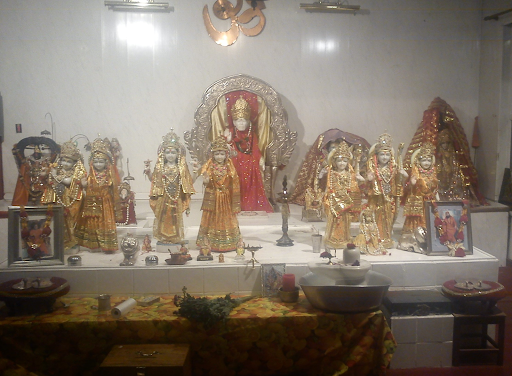
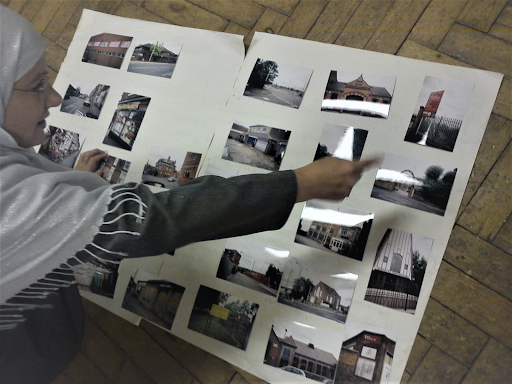
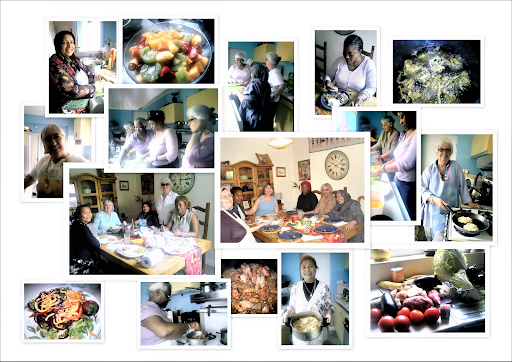
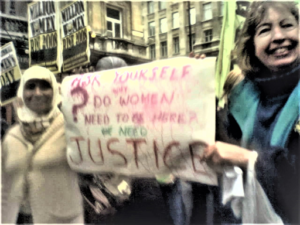
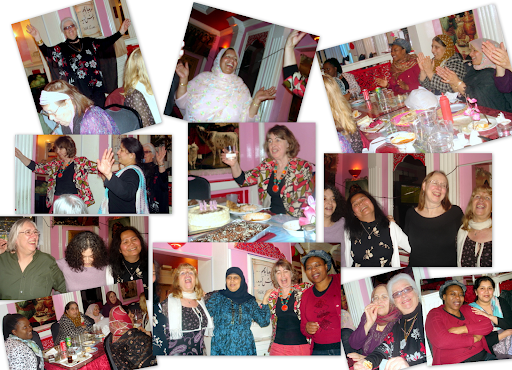
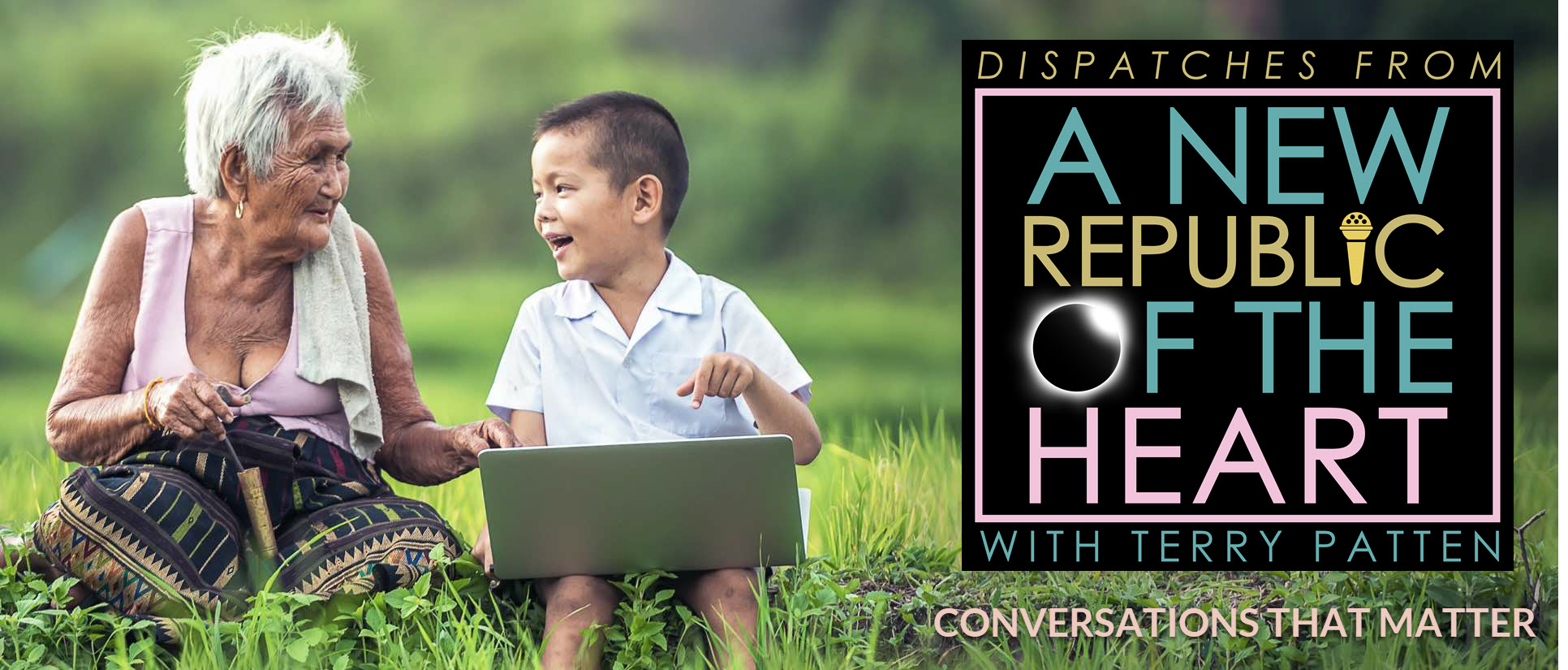
0 Comments